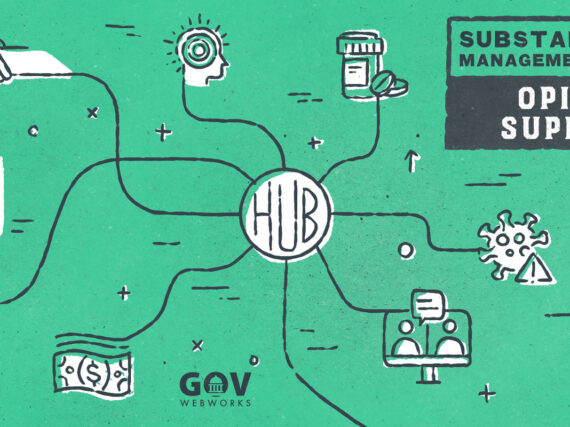Let’s call him Rob. Rob is a good father. He is also noncompliant on his child support payments. According to the National Child Support Noncustodial Parent Employment Demonstration, he does not deserve punishment. He needs help, and they want states to offer it.
This is because Rob sincerely wishes to provide for his children, but he struggles financially due to the seasonal and inconsistent nature of his chosen work.
Rob has two daughters from a sixteen-year marriage. After Rob’s divorce, he became a noncustodial parent owing $400 in child support every two weeks. To satisfy this requirement, he set up an agreement with the state to make automatic payments that are dispersed to his ex-wife and children.
All done, right? No, not always.
More to the story
Even before the divorce, Rob was struggling to meet his financial commitments. In summer, Rob is self employed in the commercial fishing industry and makes a reasonable income, but has a lot of work-related expenses. In winter he receives W2 wages as a high school coach where his expenses are reimbursed by his employer.
Due to the complicated nature of his expenses (and some being reimbursed and others not), he was afraid of making an error in his tax returns. On his first return after the divorce, he did not claim all his expenses because he had not been good at keeping track of things during the stress of the separation. When he filed without expenses, he found he was not able to pay the higher tax amount owed.
Rob tried to set up a payment plan but the monthly amount was more than he could afford along with child support. Because he had not paid his tax, the IRS put a levy on his account for the balance due.
Since his account was empty due to the levy, his automatic child support payments could not be processed. Just like that, Rob became a noncompliant parent.
Understanding deadbeat parents
We often hear news about fathers like NFL’s Terrell Owens, and other “dead beat parents,” who owe thousands in child support. Yes, it’s true that more than 30 percent of non custodial parents (both men and women) do not pay the required support, as reported by CBS, with an estimated $10 billion not collected annually. Some parents move to another state or city or file for disability to escape payments.
Not only that, but less than 50 percent of separated couples have a custodial order for payment in the first place, per the Census Bureau. This endemic lack of support can be devastating for children with parents who are struggling to make ends meet.
The Office of Child Support Enforcement (OCSE) Title IV-D program has established state programs that simplify the transfer of money from noncustodial to custodial parents, and collect overdue balances from non compliant parents. Issues may arise because many digital systems are in dire need of modernization. Updating these systems is needed to increase the effectiveness of transferring and collecting funds.
However, in the case of Rob, if funds are not available to transfer or collect, child support cannot be paid, and both parents and children suffer.
Developing upbeat parents
Rob is not a deadbeat dad. He shows up for his children and is there when they need him, he is loving and kind. And he honestly wants to support his children. He just can’t afford to do so with his current financial situation.
This is where the National Child Support Noncustodial Parent Employment Demonstration (CSPED) program comes in to play. Behind the effort to help fathers pay child support is the goal to help fathers be more involved in their children’s lives.
According to a 2007 study by Allen and Daly, children with active, loving fathers have more self esteem, better success in school, and develop stronger empathy and pro-social behaviors than children with uninvolved fathers.
The Office of Child Support Enforcement developed CSPED for unemployed or underemployed noncustodial parents who struggle with child support payments. The goal is to help improve their employment situation so they can be more financially and emotionally involved in their children’s lives, according to the Child Support Report newsletter.
Of the 10,000 noncustodial parents enrolled, more than 70 percent were unemployed or earning less than $500 a month. The three-year program resulted in higher child support payments. It also saw higher job earnings, and lower child support enforcement costs, with the benefits of the program offsetting the costs.
Similarly, CSPED’s Right Path for Fathers program, funded by a federal grant, helps longterm unemployed noncustodial parents gain skills needed to improve employment options. Participants attend class five days a week for one month to gain job readiness and parenting skills.
Help for states
To help states employ similar strategies, OCSE has developed Knowledge Works! to provide resources and technical assistance for child support agencies. It supplies a framework to “assess, design, implement, and enhance a child support-led employment program for noncustodial parents.”
Resources include:
- Ways to find federal funding sources and strategies, and overviews of federal funding approaches
- Three approaches to identify, recruit, and enroll program participants
- Sample documents from other states for design, partnership development, and program operation
- Ways to measure results and review evidence to determine program improvement
- Evaluation reports, program summaries, and highlights of lessons learned during implementation
Back to Rob. Grants are available from the OCSE to help states provide support and resources for inadvertently noncompliant parents like Rob. Employment and parenting programs can improve child support compliance. They can also encourage a better relationship between noncustodial parents and their children.
Ultimately, the act of providing for a child is rewarded in the child herself. We encourage states to apply for funding.
Learn more
To learn more about our work in child support modernization please get in touch, and follow our series on child support issues:
- Support for Changing Families: Why modernizing the IV-D child support system protects children, alleviates poverty, and reduces the strain on government, by Tom Lovering, March 19, 2019
- Working for Families: How child support agencies are supporting employment to yield better returns (from Larry Fabian’s OAS podcast), by Tom Lovering, April 9, 2019
- Solutions for Children and Families: Experts at the APHSA Summit discuss how to make changes based on behavioral science, by GWW Staff, May 14, 2019
- Moving the Needle on Child Support Compliance: How behavioral intervention improved outcomes in three states (from BICS grant programs presented at the APHSA Summit), by Tom Lovering, May 21, 2019
- Achieving Child Support System Modernization: Strategies from the National Child Support Enforcement Association conference, by Ravi Jackson, August 13, 2019







